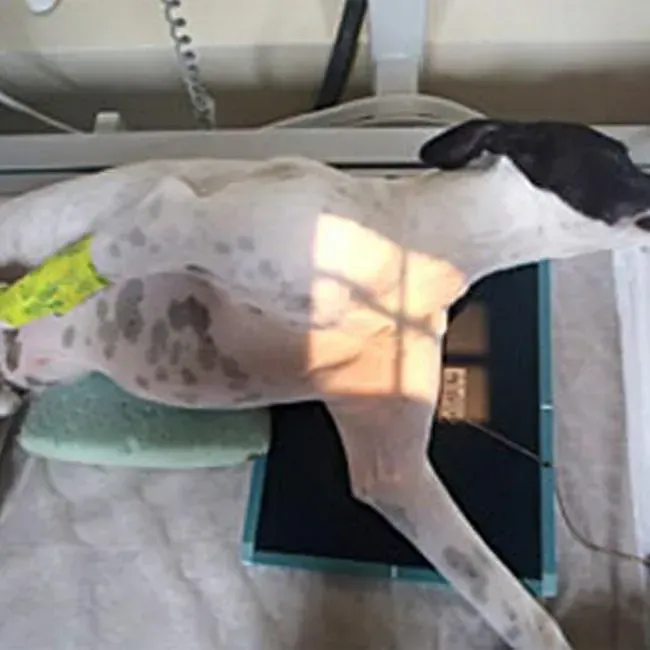Shoulder Osteochondritis Dissecans (OCD) Care for Dogs and Cats in Stockton
Shoulder Osteochondritis Dissecans (OCD) in Dogs
Shoulder Osteochondritis Dissecans (OCD) is a joint disease that commonly affects large and giant breed dogs. It occurs when cartilage in the shoulder joint doesn't develop properly, leading to the formation of loose cartilage fragments.
Symptoms of Shoulder OCD in Dogs
Limping: A noticeable lameness, especially after exercise or rest.
Pain: Dogs may show signs of pain, such as whining or reluctance to move.
Stiffness: Difficulty getting up or moving around, particularly in the morning.
Muscle Atrophy: Reduced muscle mass in the affected shoulder.
Diagnosis of Shoulder OCD
Veterinarians typically diagnose shoulder OCD through a combination of physical examination, X-rays, and sometimes advanced imaging techniques like MRI.
Treatment of Shoulder OCD
Treatment options for shoulder OCD vary depending on the severity of the condition and the age of the dog. Some common treatments include:
Rest and Medication: Mild cases may respond well to rest and pain medication.
Arthroscopic Surgery: A minimally invasive surgical procedure to remove the loose cartilage fragments.
Open Surgical Repair: In severe cases, open surgery may be necessary to repair the damaged cartilage.
Preventing Shoulder OCD
While there's no guaranteed way to prevent shoulder OCD, certain factors can influence its development. These include:
Genetics: Certain breeds are more predisposed to the condition.
Rapid Growth: Rapid growth can put stress on the joints.
Nutrition: A balanced diet can help support joint health.
Exercise: Moderate exercise can help strengthen muscles and joints.

Testimonial
What They Say

Was looking for a new Vet near me in Stockton and very happy with Walker Vet Hospital! Customer service, informative, and compassionate with staff and doctors. Give a 10 out of 10. Taking all three of my dogs there happily.


Rae W.

Good value and knowledgeable. No waiting most of the time. Always 2-3 doctors at a time and weekend care available which is appreciated. All of our three dogs been going to Walker Vet in Stockton for some time now. Never any complaints.


Nick G.

Review Us!
Visit our Google review page to share your feedback

Review Us!




